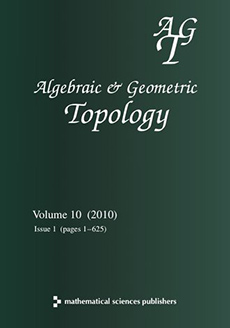Abstract
A toric manifold is a compact non-singular toric variety. A torus manifold is an oriented, closed, smooth manifold of dimension with an effective action of a compact torus having a non-empty fixed point set. Hence, a torus manifold can be thought of as a generalization of a toric manifold. In the present paper, we focus on a certain class in the family of torus manifolds with codimension one extended actions, and we give a topological classification of . As a result, their topological types are completely determined by their cohomology rings and real characteristic classes.
The problem whether the cohomology ring determines the topological type of a toric manifold or not is one of the most interesting open problems in toric topology. One can also ask this problem for the class of torus manifolds. Our results provide a negative answer to this problem for torus manifolds. However, we find a sub-class of torus manifolds with codimension one extended actions which is not in the class of toric manifolds but which is classified by their cohomology rings.
Citation
Suyoung Choi. Shintarô Kuroki. "Topological classification of torus manifolds which have codimension one extended actions." Algebr. Geom. Topol. 11 (5) 2655 - 2679, 2011. https://doi.org/10.2140/agt.2011.11.2655
Information





